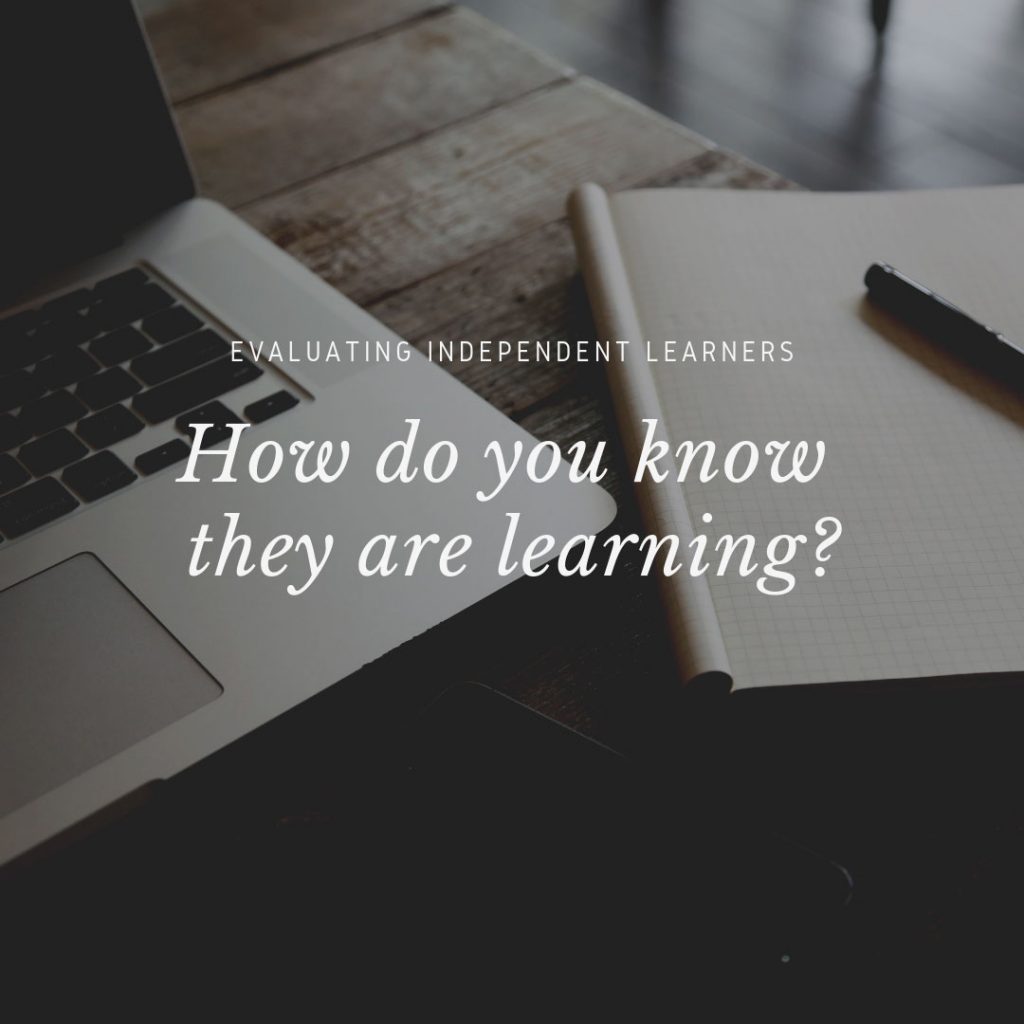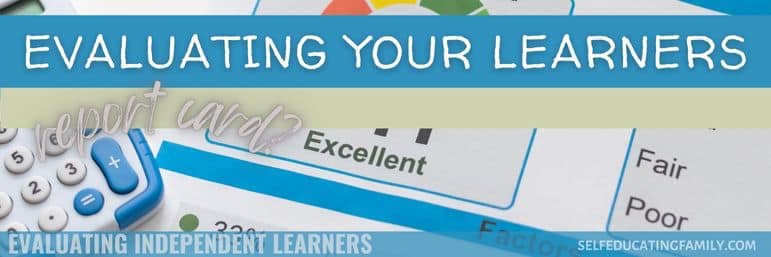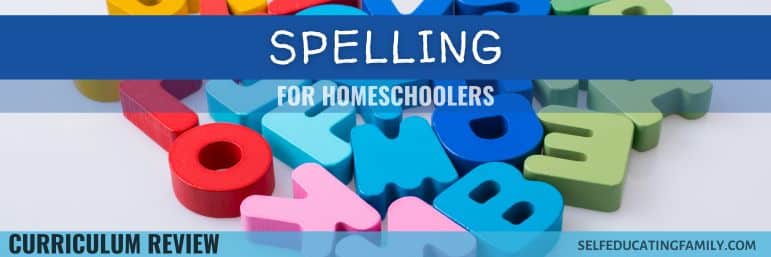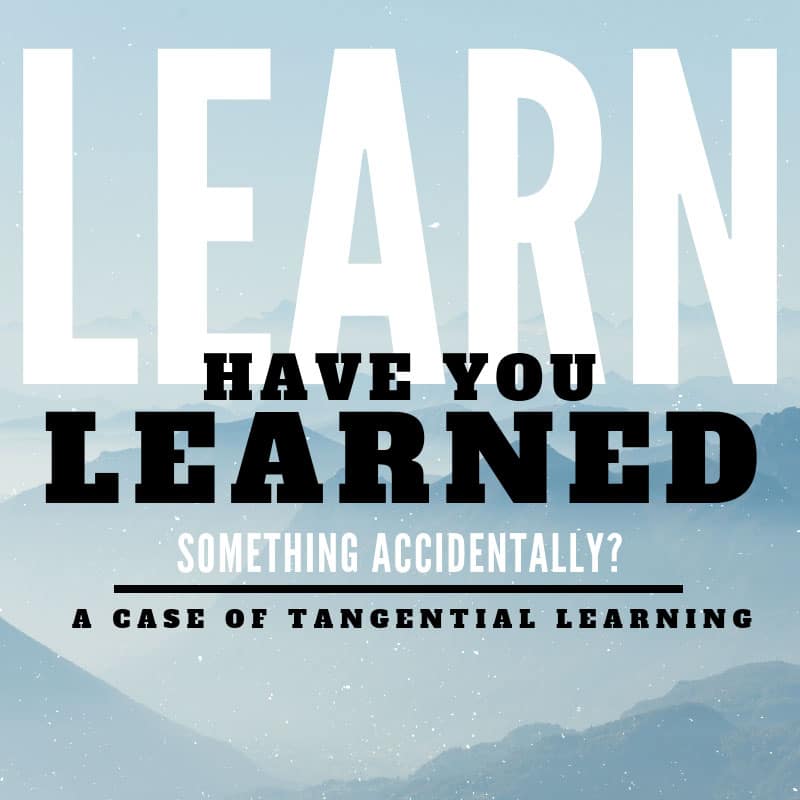What’s Inside: How do you evaluate your independent learners? We all struggle with how to help our kids become self-learners, so how do you know when what you are doing is working? The answer is that you must look at them over time. This case study comparison of 2 essays written 2 years apart by the same child will help you see how to evaluate your self-learner.
How do you know when your kids are learning if they are teaching themselves?
And how do you help them become independent learners?
Short Answer for Independent Learners
Developing independent learners takes time. I like to compare progress over large gaps of time. So, I will present writing samples from two years apart to show what I mean.
Long Answer for Independent Learners
When my two oldest hit high school, we opted to do some online homeschooling using the RonPaul Curriculum (RPC) including Chemistry, English 9 (Classic Biographies), and Business I for 9th grade. See our review of RPC here and of the review of Ron Paul’s book The School Revolution.
RPC’s curriculum promotes independent learners. Then, for our other classes that year, we chose a more traditional homeschooling approach – with books they used to teach themselves.
I have to admit, learning seemed like it was slow-going at times! But now and then, some tangential learning would occur out of nowhere. Trust the process!
Neither of my sons were particularly adept at writing when we started, and they certainly weren’t independent learners going into 9th grade. Both lacked fundamental grammar skills at that point. The RP classes required “essays” once a week from the English and Business courses, with the goal of becoming a smooth and easy writer by the time you finished each course. Also, the students were supposed to post their essays to a blog and inform the other students so that there would be natural feedback from peers.
Sharing blogs allowed us to view what peers were capable of. I’m assuming that other families had similar goals to us – to start at whatever level the student was at and improve throughout the year. The sampling of essays that we looked at indeed ran the whole range from some writers who were clearly struggling to get a coherent paragraph and others who seemed capable of college-level research papers.
We were definitely more toward the struggling side.
Starting Point: Not an Independent Learner
Sample 1—Kourdakov
While one of my sons is more math-oriented, one is more word-oriented. I’m going to share samples from the more word-oriented son.
After six weeks of the class, my son was finally able to produce an essay that he felt was worthy of posting to the blog. It took an additional week with me helping him with grammar and spelling improvements and so we declared it finished and a major victory. Here’s the essay he produced in November of 9th grade.
Kourdakov’s Failure
-written for “Classic Biographies” class
Many choices would eventually lead Kourdakov to his first mission persecuting Christian believers and that mission’s eventual “failure.” These choices stem from an emotional trauma which occurred during his early youth. This event, the death of his physically weak friend Shasha, caused Kourdakov’s decision to not only survive, but to excel in the cruel system he found himself under. All of his choices, at least up to chapter 12 in his book, can be traced back to the choice he made as a result of Shasha’s death, the choice to get on top.
His decision to get on top drove Kourdakov to excel in school and the communist league all which children were required to participate in. At age 16, this desire caused him to became a drug dealer along with some of his friends. Eventually his attempts to get to the top in the communist hierarchy and the criminal hierarchy came into conflict when an unknown man brutally stabbed him in an alley, to obtain the drugs Kourdakov was carrying. Although he survived, the stabbing forced Kourdakov to reconsider his choice to involve himself in crime. Kourdakov quickly decided to abandon crime and devote himself exclusively to the advancement of communism. He also chose to join the military to help advance his career.
Kourdakov’s exceptional achievement academically and in the communist youth league granted him access to the Soviet Union’s military schools and allowed him the choice to join the Army or Navy. He chose the Navy and earned a position at the Naval Academy in Leningrad where he continued to excel. Quickly, he was reassigned to the Naval Academy in the Kamchatka province, where the best naval cadets were sent. Almost immediately upon arriving, the communist party members offered Kourdakov the job of instructing the twelve hundred cadets at the naval academy in communism. This position granted Kourdakov a high degree of authority over the other cadets and put him in a position to advance quickly. The KGB noticed him.
One of the final choices which led him to fail in the first raid was the decision to accept KGB Major Asorov’s offer of a job leading a “special unit” in the sole purpose of fighting “special enemies of the state”. At first, Kourdakov tried to think of a way out of accepting the offer, but Asorov bribed him with a large amount of money to lead the “special team.” Kourdakov, drawn by the money, agreed.
At first the team only broke up bar fights, and arrested thieves and the like, but eventually their handler Nikiforov and Major Asorov informed them that their real purpose was to persecute religious believers. Kourdakov accepted Asorov’s ideology and committed to the persecution. Despite this decision on the first mission against believers, even as they were walking up to the house where the religious meeting was taking place, the team members realized the difference between breaking up bar fights and what they were about to do. The final decision which caused the failure comes from human morality. Despite being ordered to beat up the group of believers, and deciding that indeed the believers were a monumental threat to the Soviet Union, the members of the team could not bring themselves to physically attack innocent helpless people. This decision conflicted with Kourdakov’s previous commitment to accomplish exactly that, and brought about the “failure” on the first raid he performed.
Evaluation of Sample 1
Let’s look at some of the positive things about his Kourdakov essay: it has the beginnings of well-developed thoughts; it contains some detailed descriptions; it uses great vocabulary; and it also uses paragraphs (which some of his earlier essays did not!) On the downside, it feels amateurish and a lot like it’s simply answering an assigned question because it lacks an introductory paragraph, thesis and conclusion. But it was a fabulous start for someone who hadn’t done much expository writing before that point.
Two Years Later: Independent Learner
Sample 2—Rosencranz & Guildenstern
Now, compare that first essay with the essay he wrote in November of 2017:
Rosencrantz & Guildenstern Are Dead
by the same writer written for “Western Literature II” class two years later
Rosencrantz and Guildenstern are two of Shakespeare’s more underappreciated characters. Viewed by many as simply comic relief to what is perhaps the Bard’s greatest and most tragic play, Rosencrantz and Guildenstern actual play a much deeper and more meaningful role in the development of Hamlet’s character.
When first introduced, Rosencrantz and Guildenstern are two of Hamlet’s college friends who have just arrived from Wittenberg, Hamlet’s Alma-Marta. Rosencrantz and Guildenstern arrive in Denmark because Claudius, the new king and Hamlet’s uncle, requested they come to try and find out the cause of Hamlet’s depression and strange antics.
Hamlet appears to honestly enjoy Rosencrantz and Guildenstern’s presence, but easily deduces the true reason they have arrived in Denmark. When he presses them, Rosencrantz and Guildenstern reluctantly admit that yes, indeed, the King summoned them to try and discover why Hamlet is acting so madly, but they insist they really do care about him and want to help him, not just spy on him for his uncle Claudius.
At this point in the play we have little reason to doubt Rosencrantz and Guildenstern’s honest concern for Hamlet, and their desire to help him.
However, shortly after this meeting, Hamlet stages his famous play within a play, and thereby catches the conscience of the King. Now completely convinced that Claudius really did murder his father, Hamlet goes to kill his uncle. However, Hamlet finds his uncle alone praying and decides not to kill him because he thinks if he does Claudius will go to heaven. So instead, Hamlet goes to talk to his mother. While arguing with his mother Hamlet accidentally kills the royal advisor Polonius thinking him to be Claudius, who was spying on Hamlet and his mother.
This murder gives Claudius the excuse he needs to banish Hamlet. Claudius orders Hamlet to sail to England with Rosencrantz and Guildenstern. He also gives Rosencrantz and Guildenstern a secret message, to be given to the King of England, which offers the King of England an alliance with Denmark, in exchange for killing Hamlet as soon he reads the message.
The play doesn’t explicitly state that Rosencrantz and Guildenstern know what is in the message, they may know of the contents of the letter they may not, Shakespeare declines to tell us.
Hamlet, despite his other faults, is not unintelligent. He, while everyone else is sleeping, finds and opens the secret message. Hamlet then replaces the real message with his own, which says to immediately kill the bearers of this message. Next, Hamlet through extraordinary circumstances is kidnapped by pirates before arriving in England and then finds his way back to Denmark. Hamlet clearly felt a real affection for Rosencrantz and Guildenstern, but as he relates to his friend Horatio, Rosencrantz and Guildenstern’s perceived betrayal of him in favor of his uncle turned his affection into bitter anger, and he feels no remorse over their deaths.
Rosencrantz and Guildenstern did betray Hamlet somewhat by agreeing to spy on him for Claudius. But we simply don’t know if they were privy to Hamlet’s attempted execution. If they were, Hamlet appears at least somewhat justified in his actions, but if they were innocent, Hamlet may by this point have become every bit the cold-blooded monster that he believes his uncle Claudius to be.
Are Rosencrantz and Guildenstern immoral sycophants who betrayed their friend to death on the request of the King of Denmark? Or are they somewhat buffoonish college students who are cruelly sentenced by Hamlet, their friend, to death? We simply do not know. All we know for sure is that Rosencrantz and Guildenstern are dead.
Evaluation of Sample 2
What a difference a day makes! This essay has all the makings of a great high school essay. It includes the positive elements of the earlier essay, yet adds coherence with proper structure and thorough analysis. The thought-provoking questions that the writer has asked force you as the reader to wonder the same things. And the clever reference at the end to the modern Stoppard play, not only refers back to the essay’s title, but shows that the writer is participating in what the Charlotte Mason community refers to as “The Grand Conversation” by making connections on a deeper level between the books that the student has read.
What was interesting was that I had not really schooled him in essay writing as a targeted subject over the two years, with the exception of passing him a few articles on the subject and requiring reading of well-written essays. So I would say that he became an independent learner by practicing the skill.
So Has Learning Increased?
In this case, my son was learning to write a formal essay properly and independently. When I compare two of his essay samples with a good space of time between, I can clearly see that he had learned how to write a convincing essay.
What we couldn’t see when he wrote that first essay was how far he had to go – it’s hard to have vision in the trenches.
What we couldn’t see when he wrote the second sample was how far he had come. And so, the comparison of the two essays over time showed how far he’d come.
This principle works for self-analysis of your own independent learning just as well as analyzing your kids’ learning. Even if you learn the basic skills quickly, you still have to put in the time until mastery. But our daily incremental improvements sometimes go unnoticed.
It’s like never noticing your kids are growing taller until one day they are 6 feet tall. Or taller.
Take a second look
So take a step back and look at the things you’ve learned. And if you are learning something new or building advanced learning habits, make an appointment with yourself for a year from now to see what you’ve accomplished.
What do you think? I think this is a great way to encourage yourself if it feels like you aren’t improving—because you probably are!








